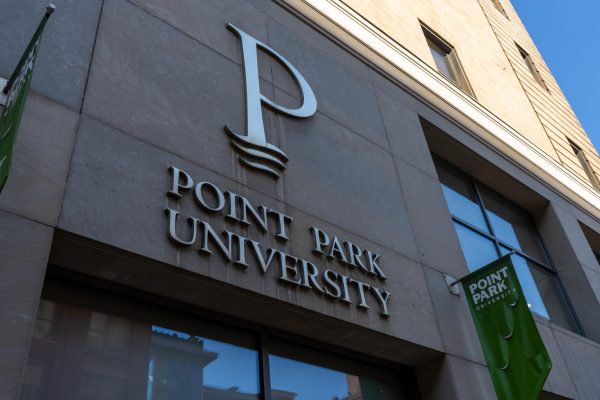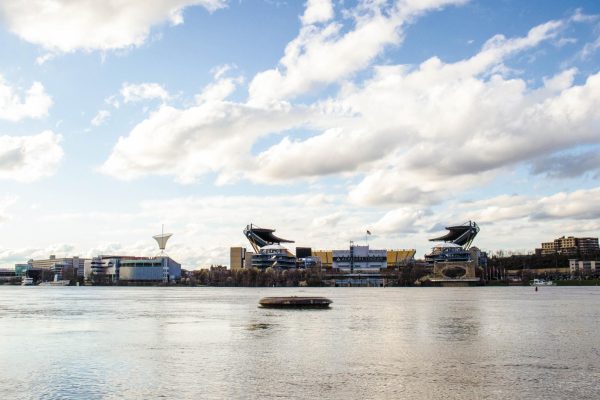Administration clarifies Playhouse funding
October 16, 2018
The new Pittsburgh Playhouse is funded through multiple distinct foundations, companies and operations, despite unfounded claims from students that the space was funded by increased tuition.
The Playhouse consists of ninety-one rooms spanning over 90,411 square feet of new construction, costing approximately $60 million, according to publicly released figures from Point Park. A building of these proportions, with all its proposed amenities and well-equipped theatres, would need adequate funding.
However, the Playhouse is classified as a non-profit organization, according to Lou Corsaro, managing director of university marketing and public relations.
Corsaro assured the Playhouse is not being funded through student tuition payments, as the Playhouse solely operates on its own individual budget.
“We don’t have to raise tuition to cover our day-to-day expenses,” Corsaro said.
Instead, much like the Center for Media Innovation, the Playhouse is funded through various sources. Corsaro detailed that the Playhouse has received funding from alumni efforts, contributions from the Board of Trustees and businesses that make up local corporate communities.
PNC is a major contributor to the Playhouse, as the company has leased ten years of patron parking in PNC Tower. Corsaro says that accessibility to the Playhouse is a key contribution and is much easier to accomplish in the new location with PNC’s help than at the previous Oakland location.
“It’s a big gift from PNC,” Corsaro said.
PNC is also one of the companies that have theatres named after them because of their aid in funding the construction and maintenance of the Playhouse, tying its name to the largest 550 seat asymmetrical theatre. Highmark was also honored with the name of its company tied to the new transformational theatre space that can allow for outdoor concert seating or indoor open-air performance seating.
These various forms of theatre will host a variety of different shows, performances and concerts to pull in larger audiences – ultimately teaching theatre students through various kinds of equipment so they would gain experience by working with specific tools to prepare them for differently equipped theatres in their careers, according to
Corsaro.
The span of different events that can be performed in these spaces would also help to generate a larger income via ticket sales by appealing to different audiences, although Anthony Dennis, director of box office sales, explained that ticket sales are not a major
priority.
Dennis described ticket sales as a “middling” form of income: not the primary source of funding for day-to-day operations.
The income gained from ticket sales would be directed towards the Playhouse’s budget but would only cover the cost of facilities and upkeep of the building. The Playhouse will not fund the expenses of shows performed through the conservatory.
Costume, set and prop costs will be allocated to the Conservatory’s separate budget while the upkeep of stage equipment and lighting will be allocated to the Playhouse’s budget, according to Dennis.
However, Dennis also pointed out how the location of the new Playhouse will boost ticket sales.
“It’s closer, definitely more convenient for students to see shows,” Dennis said.
The previous Oakland location had student shuttles available, but the new location is connected to the University Center library that allows students on campus to walk directly to and from the Playhouse. Dennis predicted that this proximity to the campus and downtown location would provide greater ticket sales than the Oakland location.
Chief financial officer Bridget Mancosh declined multiple requests for comment on how the budget was spread out or how the building’s costs will be paid.
Vice President of Student Affairs and Dean of Students Keith Paylo said that he does not know if the Playhouse’s building debts and expenses are fully paid off, nor does he know if the building is currently on- or off-budget.
Correction: An earlier version of this article incorrectly stated that the Black Box Theatre was funded with financial aid from the Richard E. Rauh Conservatory of Pittsburgh Musical Theater. The Rauh Conservatory did not contribute funding to the Pittsburgh Playhouse.















